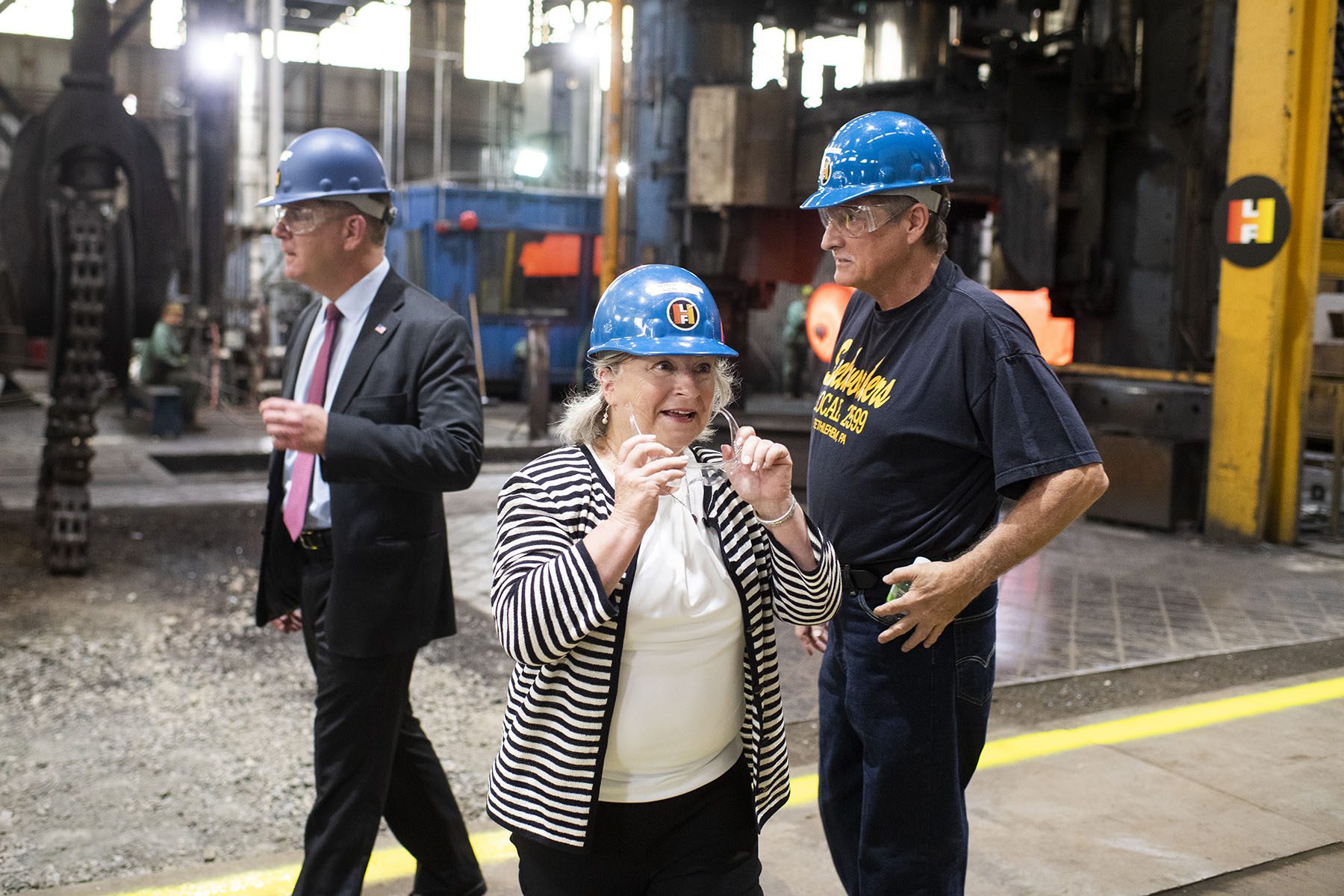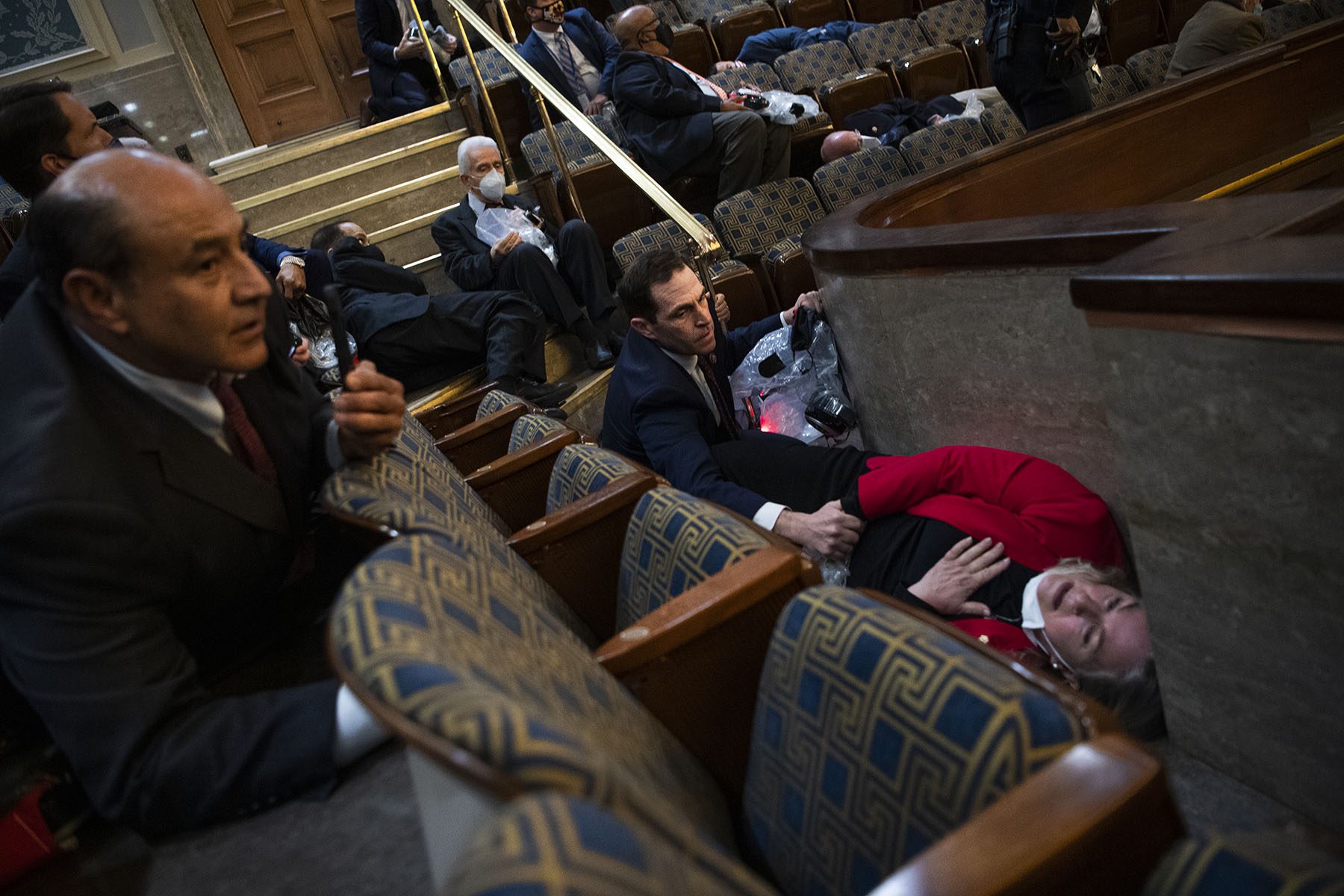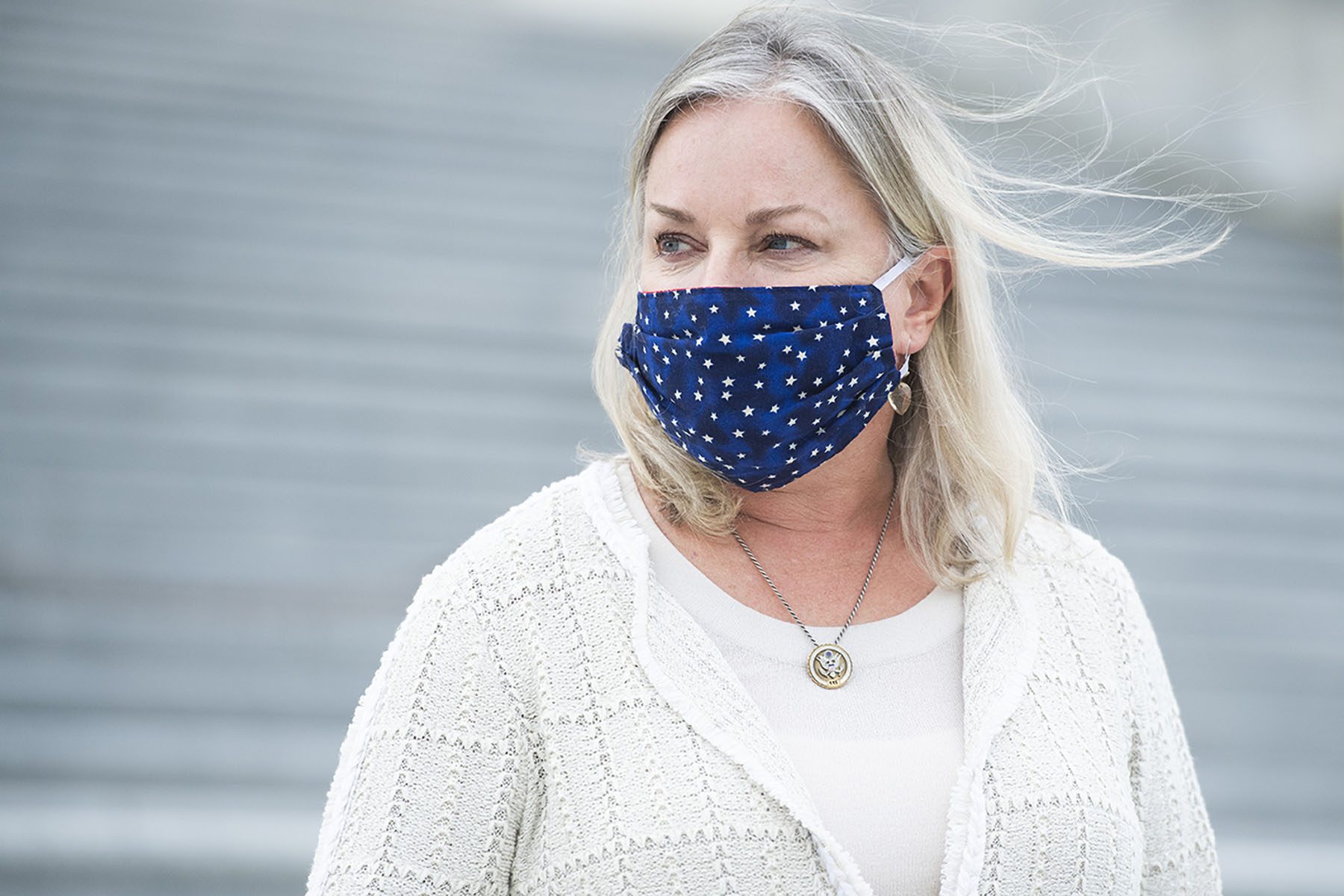September is Suicide Prevention Awareness Month. If you or someone you know is having a mental health emergency the National Suicide Prevention Hotline has counselors available 24 hours a day via web chat and by phone at 1-800-273-TALK. The Trevor Project also operates a hotline for LGBTQ+ youth at 1-866-488-7386.
ALLENTOWN, Pennsylvania — When Rep. Susan Wild was elected in 2018 to represent her district in eastern Pennsylvania, she did not anticipate mental health care becoming the issue that would define her early years as a legislator.
Then Wild’s longtime partner died by suicide in May 2019. The COVID-19 pandemic hit in early 2020, and her constituents reported rising stress levels. During the insurrection at the U.S. Capitol on January 6, Wild was in a group of about two dozen Democratic lawmakers who sheltered in place in the House gallery as shots were fired outside the chamber.
Each experience, traumatic in its own way, inspired Wild to focus on highlighting the importance of mental health care, whether by sponsoring legislation or sharing her own experiences.
“If you believe in service to others, which I do, if you can help others learn from the bad experiences that have happened in your own life, I think it’s a net positive,” the longtime lawyer, former city solicitor and mother of two adult children told The 19th in a recent interview. Earlier that day, she had toured a community center that provides resources to people with mental illness.
Wild said the detective who called her to tell her about the death of her partner, Kerry Acker, who dealt with chronic pain, said it was the third suicide he had handled that week. All were White men over 60 years of age. “I remember thinking: I never in a million years would have thought that would be a high demographic for suicide. It sparked my curiosity,” she said.
In 2019, more than 47,000 Americans died by suicide, making it the 10th leading cause of death. White men accounted for nearly 70 percent of all suicide deaths, and the highest suicide rate was among middle-aged White men, according to government data analyzed by the American Foundation for Suicide Prevention.
The risk is high in other demographics as well. Among young people aged 1o to 24, for example, suicide is the second leading cause of death, and LGBTQ+ youth consider and attempt suicide at rates higher rates than heterosexual youth, according to the Trevor Project, an organization providing suicide-prevention services to LGBTQ+ youth.
On the month marker of Acker’s death, Wild delivered a emotion-filled speech on the House floor urging anyone else considering suicide to seek mental health treatment. A man from Iowa called to say it had prompted him to get help. Constituents shared how suicide touched their own families. Former NFL player Fred Stokes, who had contemplated it himself in the past, reached out, and the pair began working on suicide-prevention initiatives. Wild introduced related legislation and participated in lawmaker roundtables to raise awareness. She and other lawmakers have pressed the video-sharing platform YouTube to take more suicide prevention measures.
“I had a lot of people reaching out and saying, ‘Oh, my God, I’m so glad you stepped up to talk about it, because this happened to my family.’ When that happens, it sort of really propels you, it made me realize that this wasn’t just my own solitary experience, but one that I’d been given this public forum, and I needed to do something about it,” Wild said.
Dr. Paul Nestadt, a practicing psychiatrist and the co-director of the Johns Hopkins Anxiety Disorders Clinic, said “it is both brave and important for lawmakers to share their personal experiences with mental health and suicide.” He participated in a suicide prevention roundtable Wild led in 2019.
“When people speak out, especially people in power, others in mourning feel less alone, more seen. Congresswoman Wild has turned personal tragedy into motivation to help others who may be suffering in the community who do not have the same resources,” he added.

Wild serves on the House Committee on Education and Labor’s health subpanel and said she plans to use that perch to examine how to improve access to mental health care in schools and workplaces, including by addressing workforce shortages among mental health care professionals.
School superintendents in her district, for example, have consistently told her they have trouble recruiting enough school psychologists. Then, after COVID-19 shuttered schools, Wild “started to hear throughout the year that there were a lot of students who were really struggling, not only academically, but mentally, because they weren’t seeing their friends, they weren’t participating in sports, the younger kids didn’t have recess as an outlet.”
Wild has held listening sessions with parents, educators and mental health care providers about youth suicide prevention. Some constituents have contacted her directly for help finding mental health care for themselves or their children. As the country emerges from the pandemic and the committee is able to expand its focus, Wild wants to hold hearings to explore using subsidies, student loan forgiveness and other measures to recruit and retain more mental health care professionals.
Wild said it has struck her over the course of the pandemic that “people are willing to talk about their mental health in a way that I never saw before.”
Wild worked closely with health care professionals, including many nurses, during her years representing them in medical malpractice cases. It became clear early on during the pandemic that COVID-19 would exact a toll on their mental health. One of Wild’s friends, a nurse, slept in her car and showered at the hospital to avoid exposing her husband and children to the virus. (The hospital eventually began providing workers with some limited living accomodations). She began to hear about “horrible burnout, fear, stress, anger,” she said.
“What I was hearing was, ‘I can’t do this anymore but I feel like I have an obligation to do this,’” Wild said. “There’s a reason they’re doing that job, and it’s not for the glory. They’re doing it because they’re really committed to it, so the idea of bailing in the middle of a pandemic, it really goes against most of their brains, so most of them stuck with it, but they paid the price.”
Earlier this year, Wild took on the mantle of legislation originally introduced by former Rep. Max Rose of New York, who lost his seat in the 2020 midterm election, that aims to reduce and prevent suicide and burnout among frontline health care workers. The Dr. Lorna Breen Health Care Provider Act is named for an emergency room supervisor at the New York-Presbyterian Allen Hospital in Manhattan who died by suicide after working round-the-clock treating COVID-19 patients. The bipartisan, bicameral bill was unanimously approved by the evenly divided Senate last month, improving the chances it will become law this year after consideration in the House, where Democrats hold a slim majority.
“The reality is, we haven’t done very much for frontline workers. They didn’t get hazard pay, at least none from the federal government, and I think it would be a really nice way of honoring those frontline workers,” Wild said.

One thing she learned from her experience in the House gallery on January 6 is how after a stressful event, post traumatic stress disorder “often triggers some trauma earlier in your life.” For Wild, it brought back the memories of her partner’s suicide. Rep. Jason Crow of Colorado, a combat veteran who comforted Wild in the gallery, has talked openly about how fearing for his life during the attack reminded him of his service in Iraq and Afghanistan. Rep. Norma Torres of California is a former 911 dispatcher who has since spoken to the law enforcement officers who responded that day. Wild has talked to two widows of the four officers who died by suicide in the weeks and months following the attack. The gallery lawmakers have met as a group with a psychologist and support one another on a group message.
Wild said she thinks “we’ve done a pretty good job, as a country, in reducing the stigma associated with mental health care” in recent years. “We certainly haven’t gotten rid of it, but we’ve improved the problem. Now, what I’m hearing is people who recognize that they or a family member are in need of mental health care can’t find it.”
“That was not part of my agenda when I was running or when I first got to Congress, but I’m a big believer that you follow the path life leads you on,” Wild said.






